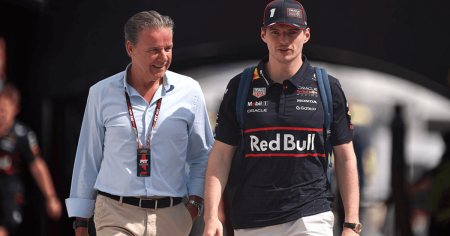Russian Foreign Minister Sergei Lavrov recently praised U.S. President Donald Trump’s pragmatic approach to ending the war in Ukraine, while criticizing European powers for seeking to prolong the conflict. In an interview with the Russian military newspaper Krasnaya Zvezda, Lavrov highlighted Trump’s "common sense" and his commitment to resolving global conflicts, which he described as a refreshing shift in U.S. foreign policy. Lavrov also emphasized that while Russia and the United States will never fully agree on every issue, both nations have shown a willingness to be pragmatic when their interests align. Trump’s "Make America Great Again" (MAGA) slogan, according to Lavrov, reflects a focus on national interests and a more personal, relatable style of politics that makes working with him interesting.
The conflict in Ukraine has been a central issue in international relations since Russia launched its full-scale invasion in 2022. The war has its roots in 2014, when pro-Russian President Viktor Yanukovych was ousted during the Maidan Revolution, and Russia subsequently annexed Crimea. Since then, Russian-backed separatist forces in eastern Ukraine have clashed with Ukrainian troops, drawing the country into a protracted and deadly conflict. The 2022 invasion marked a significant escalation, with Russia deploying thousands of troops and triggering the largest confrontation between Moscow and the West since the Cold War. Today, Russian forces control nearly one-fifth of Ukraine, while Kyiv has vowed to defeat Russia on the battlefield. For Russian President Vladimir Putin, the conflict is framed as part of a broader existential struggle against a declining West that he claims has humiliated and encroached on Russia’s sphere of influence since the fall of the Berlin Wall in 1989.
Lavrov’s comments come amid heightened tensions between Russia and the West over Ukraine. He accused European powers of trying to extend the conflict, while praising Trump for his efforts to bring it to an end. Lavrov pointed to Europe’s historical role as the "crucible of all the tragedies of the world," citing colonization, wars, the Crusades, and conflicts like World War I and II as examples of Europe’s problematic legacy. He contrasted this with what he described as a growing desire for peace among U.S. leaders, particularly under Trump, who he said wants to end all wars and prioritize common sense. Lavrov dismissed European proposals for deploying peacekeepers to Ukraine, arguing that such a move would not address the root causes of the conflict and would instead serve to prop up Ukrainian President Volodymyr Zelenskiy’s government.
The situation in Ukraine took a dramatic turn recently when Trump and Vice President JD Vance clashed with Zelenskiy during a meeting in the Oval Office. Trump reportedly accused Zelenskiy of disrespecting the United States and criticized his handling of the war, claiming that Ukraine was losing and had no viable strategy left. European leaders quickly came to Zelenskiy’s defense, underscoring the deepening divide between the U.S. and its European allies over how to approach the conflict. Lavrov seized on Trump’s comments to further criticize Europe, which he accused of wanting to "prolong the banquet" of war. He also expressed skepticism about European peacekeeping proposals, arguing that they fail to address the rights of Russian-speaking Ukrainians and would only serve to entrench the status quo.
Despite his criticism of Europe, Lavrov acknowledged that the United States still seeks to maintain its position as the world’s most powerful nation. He emphasized that while Russia and the U.S. will never see eye to eye on everything, there is room for cooperation when their interests align. This pragmatic approach, he suggested, is a hallmark of Trump’s presidency and a departure from the more ideologically driven policies of previous administrations. Lavrov also noted that Trump’s focus on national interests and his unconventional style make him a more engaging and dynamic figure on the global stage.
The ongoing conflict in Ukraine remains a critical issue, with far-reaching implications for global stability and international relations. Lavrov’s comments reflect Russia’s attempts to frame itself as a pragmatic and peace-seeking nation, while portraying Europe as a driver of conflict and chaos. At the same time, Trump’s colorful and often controversial approach to foreign policy continues to shake up traditional alliances and strategies. As the war in Ukraine drags on, the interplay between U.S. pragmatism, European solidarity, and Russian ambitions will likely shape the course of the conflict and the future of global geopolitics.









